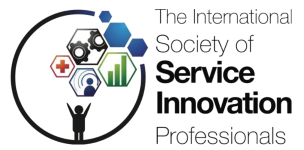Congratulations to all the 2023 ISSIP AI Collab students for earning an ISSIP Digital Certificate! Students can add the ISSIP Digital Certificate to their LinkedIn profile by following the instructions here.
PSU
John Pekor (LI) (DC), Abigail Moliski (LI) (DC), Shiquan Zhang (LI) (DC), Ahmad Alhabib (LI) (DC)
See the service innovation cases – airplane (github) (pdf), automobile (github) (pdf) (case study guide), ATM (pdf) (case study guide) (video), social media (github) (pdf) – and the final playbook (pdf), final presentation (slides) (recording) ( poster) ( report). Also see the ISSIP AI Collab project page here.
SJSU
Yash Gandhi (LI) (DC), Nidhi Sharanya (LI) (DC), Armon Sohirad (LI) (DC), Sakar Bajagain (LI) (DC), Sarthak Dhomne (LI) (DC)
See this ISSIP AI Collab webpage for more details on the project, and also check the amazing SJSU MIS Honors students’ very own InnoVision Consulting team website for even more details.
CSULB
Nason Ahn (LI) (DC), Tiffany Alexanian (LI) (DC), Trevor Amy (LI) (DC), Mateo Bokun (LI) (DC), Kristy Cao (LI) (DC), Christie Chen (LI) (DC), Tony Chen (LI) (DC), Paulo Cuellar (LI) (DC), Logan Davis (LI) (DC), Kyle Del Rosario (LI) (DC), Aaron Hassankhail (LI) (DC), Alvin Hu (LI) (DC), Ruby Macias (LI) (DC), Isabel Martin-Horvath (LI) (DC), Kiana Nguyen (LI) (DC), Zakiya Pleasant-Jones (LI) (DC), Clarisse Sapida (LI) (DC), Maria Torres (LI) (DC), Shelby Trainor (LI) (DC), Tristan Van (LI) (DC), Yingyin Wu (LI) (DC), Zimena Xala (LI) (DC), Jinyoung Yi (LI) (DC), Kin Zeng (LI) (DC), Jinyoung Yi (LI) (DC), Esther Hsieh (LI) (DC)
See the ISSIP AI Collab Page for this project,
See more coming soon… will take time for me to upload all the cool stuff these outstanding students created – so circle back when you can!
How to join in the learning fun with generative AI
If you are a student, faculty, industry professional, or someone else interested in participating in an ISSIP AI Collab for generative AI, please send an email request to info@issip.org.
We also recommend trying out the following prompt on as many generative AI Large Language Models (LLMs) as possible – and explore possible historic service innovation cases of most interest to you.
“Please create a table that lists the following innovations in column 1: Plow, Cities, Writing, Standard Measures, Written Laws, Money, Compound Interest, Compass, Universities, Clock, Steam Engine, Constitutional Government, Universal Education, Lightbulbs, Automobile, Installment Payment Plans,, Credit Cards, Online Trust (e.g., eBay reputation system), Ride sharing, Room sharing. Please also include a second column with the approximate year of invention. Please add a third column with the major benefit of the innovation. Please add a fourth column with any harms created or enabled by the innovation.”
Understanding capabilities, benefits, harms, and stakeholders is key to understanding service innovation. All entities, including people, business, universities, governments, cities, etc., learn to become better future versions of themselves by giving and getting service. Service is the application of resources (e.g., knowledge) for the benefit of another. Innovations change practices of people, and service innovations change whole systems, shifting them towards more win-win interactions. The power to change is in interactions.
Image Credit:
Microsoft Bing Image Creator powered by OpenAI DALL-E 3, Jim Spohrer (20231217) Prompt: “Show university students (a woman) universities all over the world (around a globe) using generative AI to create historical cases of service innovations”

